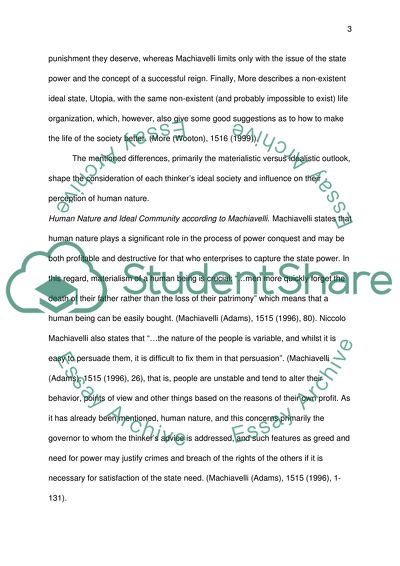Cite this document
(“Thomas More and Niccolo Machiavelli on Human Nature Essay”, n.d.)
Retrieved from https://studentshare.org/literature/1700933-thomas-more-and-niccolo-machiavelli-on-human-nature
Retrieved from https://studentshare.org/literature/1700933-thomas-more-and-niccolo-machiavelli-on-human-nature
(Thomas More and Niccolo Machiavelli on Human Nature Essay)
https://studentshare.org/literature/1700933-thomas-more-and-niccolo-machiavelli-on-human-nature.
https://studentshare.org/literature/1700933-thomas-more-and-niccolo-machiavelli-on-human-nature.
“Thomas More and Niccolo Machiavelli on Human Nature Essay”, n.d. https://studentshare.org/literature/1700933-thomas-more-and-niccolo-machiavelli-on-human-nature.


